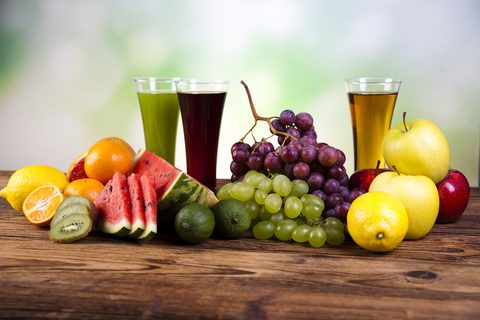

Improve Yield, Clarity and Stability of Fruit Juice with the use of Enzymes
Extraction of fruit and vegetable juice involves maceration followed by pressing or decanting to separate juice from solids. Enzymes can play a key role in improving the efficiency of these processes to achieve high quality juices.
The juices from a wide variety of fruit & vegetables such as apples, pears, carrots, mango and berries can be extracted to produce natural beverages.
The processes used vary considerably depending on the type of fruit/vegetable, its age and maturity. In general, extraction of fruit and vegetable juice involves maceration followed by pressing or decanting to separate the juice from the solids. In a competitive industry fruit juice manufacturers need to ensure that their processes are as efficient as possible and results in maximum yield of high quality juices.
Enzymes can play a key role in these processes, improving yield, clarity and stability of the juice. Blends of macerating enzymes consisting of pectinases in combination with other carbohydrate degrading enzymes are useful in breaking open the fruit tissues to release more juice.
Enzymatic maceration can result in extraction of >95% of the soluble solids from the fruit. Enzymes are also used to help clarify and stabilize the juice by degrading soluble pectins and starches that would otherwise cause haze. Biocatalysts provide a comprehensive range of enzymes to aid the production of fruit juice and cider.
Some examples of enzymes used in fruit juice production:
- Pectinase 831L promotes improved juice yield, full flavour recovery and rapid clarification of the juice. It can be added either to the pulp or juice to provide controlled disintegration and rapid reduction in viscosity.
- Pectinase 62L is used to improve the yield from pressed fruit pulp by breaking down pectins and can be used to clarify juice. It demonstrates excellent stability at low pH and is particularly suited for processing high-acidity fruit.